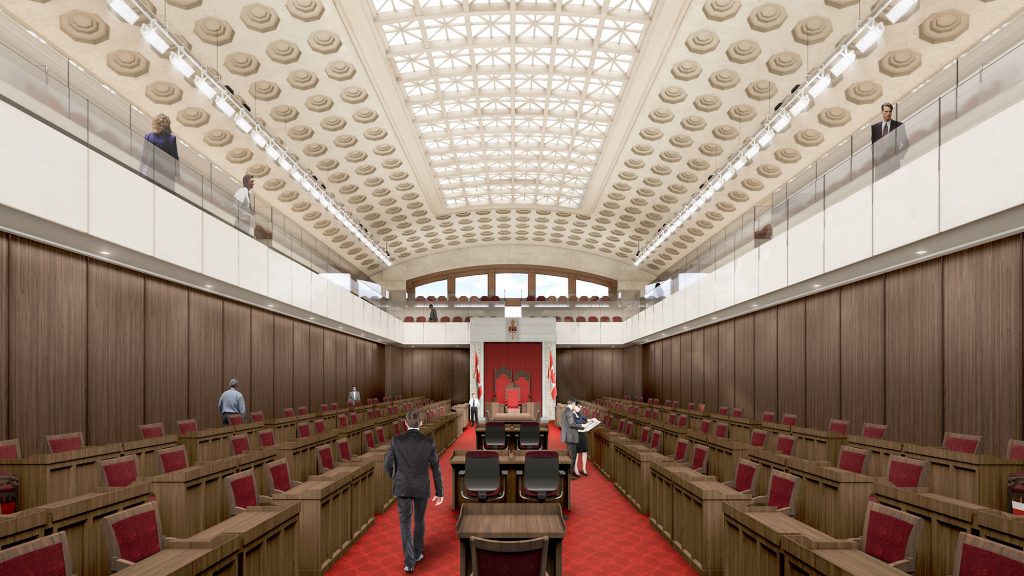Senate chamber sessions to go live to public
By Liam McPherson
The temporary Senate chamber in the Government Conference Centre is to be fitted with television cameras, marking the first time in Canadian history that full Senate sessions will be broadcast to the public.
The move to the new chamber is scheduled to take place this fall, when work begins on a decade-long rehabilitation of Centre Block. The Government Conference Centre, located on Rideau Street across from the Château Laurier, was once Ottawa’s principal train station and admired for its vintage art deco architecture.
The building was selected as the location for the new Senate chamber because of its size and proximity to Parliament Hill.
Public Services and Procurement Canada, in charge of the temporary Senate’s construction, is moving ahead with the plan. Though technical details have not been released, Chloe Fedio, press secretary to Sen. Peter Harder, the government’s representative in the Senate, confirmed via email that “the temporary chamber will be equipped with cameras for TV broadcasting.”
But there is some skepticism among senators about how engaging televised proceedings would be.
Conservative Sen. Don Plett recently told The Hill Times that the Senate should be careful about using chamber resources for something that “no one would watch.”
The House of Commons has been broadcasting its proceedings since 1977, and the Senate has long received criticism for not following suit. A Senate special committee recommendation was unanimously adopted in December 2016, removing the word “audio” from the broadcasting rules and allowing for both video and audio broadcasting in the chamber.
Since that change, the Senate has broadcast only a handful of committee proceedings. With the move to the Government Conference Centre, however, daily televised debates are expected to become the norm.
Harder said full-time broadcasting will allow Canadians a better idea of what senators do on a daily basis.
“Televising Senate debates will allow Canadians to see sober second thought in action,” Harder said. “By making Senate proceedings more accessible, the institution becomes more accountable and transparent to the citizens it works to serve.”
Victoria Deng, press secretary for Senate speaker George Furey, said that although plans are in motion to televise proceedings through ParlVu and CPAC, the exact effect it will have on debate format and scheduling has yet to be determined.
“It is up to the Senate as a whole to decide on changes to the rules of debate,” she said. “Typically, this would be done through the adoption of a report of the Standing Committee on Rules, Rights and Procedures of Parliament.”
Deng added that when renovations in Centre Block are complete, it will not mean an end to televised proceedings. “Broadcasting capabilities in the Senate Chamber are part of the requirements for the rehabilitation (of Centre Block). This means that proceedings will continue to be filmed once Senators return to the building.”

